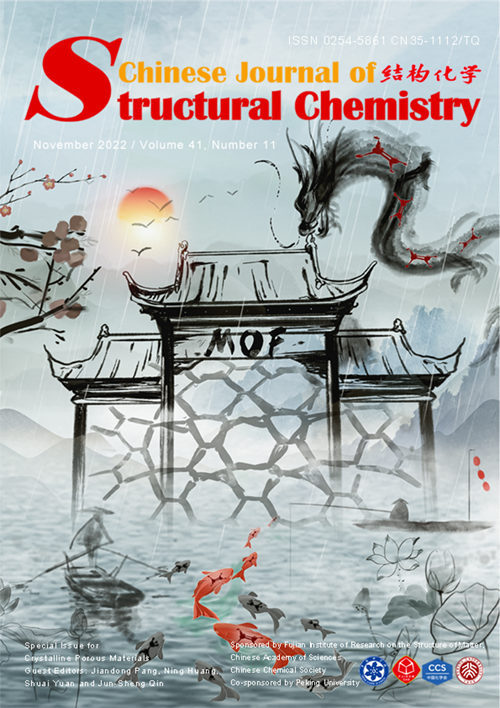
Cover Picture
Recent Advances in C2 Gases Separation and Purification by Metal-Organic
Frameworks
Zhengyi Di, Xinjing Zheng, Yu Qi, Heng Yuan and Cheng-Peng Li*
Submit a ManuscriptRecent Advances in C2 Gases Separation and Purification by Metal-Organic Frameworks
Zhengyi Di, Xinjing Zheng, Yu Qi, Heng Yuan and Cheng-Peng Li*
Chin. J. Struct. Chem. 2022, 41, 2211031-2211044 DOI: 10.14102/j.cnki.0254-5861.2022-0132
October 31, 2022
metal-organic frameworks (MOFs), adsorption and separation, C2 gas, design and synthesis, pore size
ABSTRACT
Separation of C2 gases (C2H2/C2H4,
C2H6/C2H4 and C2H2/CO2)
mixtures is one of the most important and energy-demanding processes in
chemical industry. Traditional separation methods (fine distillation separation
and selective catalytic hydrogenation separation) have the shortages of high
energy consumption and inefficient use of resources, affecting the achievement
of peak carbon dioxide emissions and carbon neutrality targets. Separation
based on adsorption is considered as one of the best ways to achieve low-energy
separations. Therefore, it is of great importance to synthesize materials that
enable the effective separation and purification of C2 gases under mild conditions. As an emerging class of porous materials,
metal-organic frameworks (MOFs) show great promise in the field of gas
separation and purification due to their ultra-high specific surface area,
easily modifiable pore surfaces, structural designability and
functionalization. Herein, we summarize recent research advances by use of MOFs
sorbents for the separation and purification of C2 gases, including
C2H2/C2H4, C2H6/C2H4 and C2H2/CO2. Relationship between structures
and separation mechanism is also explored. Furthermore, challenges and possible
research directions related to the further exploration are also discussed.







